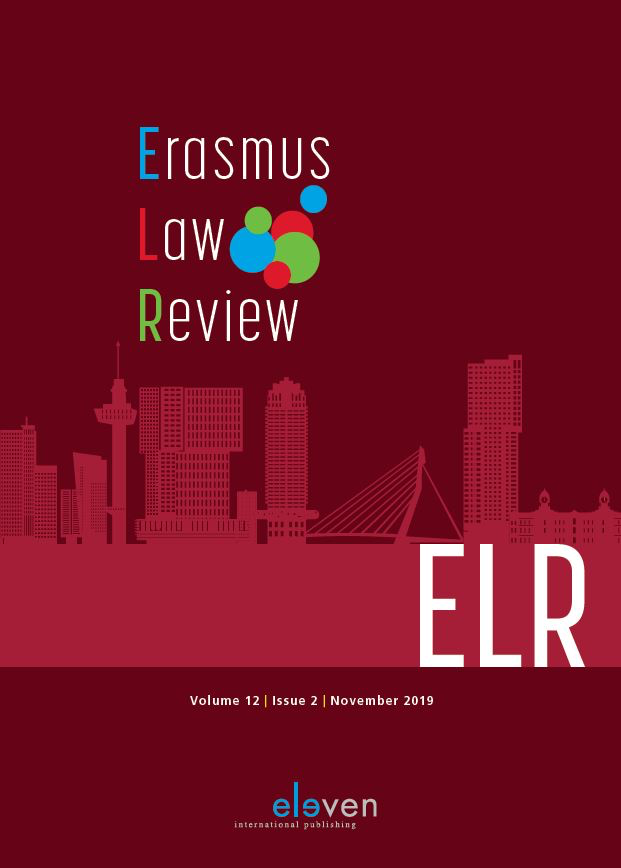|
In both the European Union (EU) and the United States (US), the law governing the enforcement of foreign judgments is evolving, but in different directions. EU law, especially after the elimination of exequatur by the 2012 ’Recast’ of the Brussels I Regulation, increasingly facilitates enforcement in member states of judgments of other member states’ courts, reflecting growing faith in a multilateral private international law approach to foreign judgments. In US law, on the other hand, increasingly widespread adoption of state legislation based on the 2005 Uniform Foreign-Country Money Judgments Recognition Act (2005 Act), which adds new case-specific grounds for refusing enforcement, suggests growing scepticism. In this essay, I explore possible reasons for these diverging trends. I begin with the most obvious explanation: the Brussels framework governs the effect of internal EU member state judgments within the EU, whereas the 2005 Act governs the effect of external foreign country judgments within the US. One would expect more mutual trust – and thus more faith in foreign judgment enforcement – internally than externally. But I argue that this mutual trust explanation is only partially satisfactory. I therefore sketch out two other possible explanations. One is that the different trends in EU and US law are a result of an emphasis on ’governance values’ in EU law and an emphasis on ’rights values’ in US law. Another explanation – and perhaps the most fundamental one – is that these trends are ultimately traceable to politics. |


Erasmus Law Review
Over dit tijdschriftMeld u zich hier aan voor de attendering op dit tijdschrift zodat u direct een mail ontvangt als er een nieuw digitaal nummer is verschenen en u de artikelen online kunt lezen.
| Editorial |
|
| Auteurs | Laura Carballo Piñeiro en Xandra Kramer |
| Auteursinformatie |
| Article |
|
| Trefwoorden | private international law, conflict of laws, foreign judgments, European Union, United States |
| Auteurs | Christopher Whytock M.S., Ph.D., J.D. |
| SamenvattingAuteursinformatie |
| Article |
|
| Trefwoorden | CSR, conflicts of law, Kiobel, Shell |
| Auteurs | Geert Van Calster Ph.D. |
| SamenvattingAuteursinformatie |
|
This contribution firstly reviews developments in the EU and in the United States on corporate social responsibility and conflict of laws. It concludes with reference to some related themes, in particular on the piercing of the corporate veil and with some remarks on compliance strategy, and compliance reality, for corporations. |
| Article |
|
| Trefwoorden | global governance, family relations, nationality, habitual residence, party autonomy |
| Auteurs | Professor Yuko Nishitani Ph.D. |
| SamenvattingAuteursinformatie |
|
As globalisation progresses, cross-border movements of people are becoming dynamic and multilateral. The existence of different groups and minorities within the community renders the society multiethnic and multicultural. As individuals acquire new affiliation and belonging, the conventional conflict of laws methods may no longer be viable and should be subject to a thorough re-examination. Against this background, this paper analyses appropriate conflicts rules in international family relations to reflect an individual’s identity. Furthermore, in light of the contemporary law fragmentation, this study also analyses interactions between state law and non-state cultural, religious or customary norms. |
| Article |
|
| Auteurs | Laura Maria van Bochove Ph.D. |
| SamenvattingAuteursinformatie |
|
The Rome I Regulation on the law applicable to contractual obligations contains several provisions aimed explicitly at the protection of ‘weaker’ contracting parties, such as consumers and employees. However, in addition to this, the interests of weaker parties are sometimes also safeguarded through the application of ‘overriding mandatory provisions’, which are superimposed on the law applicable to the contract to protect a fundamental interest of a Member State. This article is an attempt to clarify the extent to which the concept of overriding mandatory provisions may serve as a vehicle for weaker party protection. To do this, it examines the definition and limitations of the concept and its relation to conflict of laws rules based on the protective principle. Finally, the article seeks to establish whether the doctrine of overriding mandatory provisions remains relevant in the case of harmonisation of substantive law at the EU level, for which it will differentiate between full and minimum harmonisation. |
| Article |
|
| Trefwoorden | private international law, applicable law, overriding mandatory provisions, transnational employment relations, posting of workers |
| Auteurs | Prof.dr. Aukje A.H. Ms van Hoek |
| SamenvattingAuteursinformatie |
|
The regulation of transnational employment in the European Union operates at the crossroads between private international law and internal market rules. The private international law rules are currently laid down in the Rome I Regulation. This regulation is complemented by the Posted Workers Directive, a directive based on the competences of the EU in the field of free movement of services. The current contribution first describes the rules which determine the law applicable to the employment contract under Article 8 Rome I Regulation and the way these rules are interpreted by the CJEU before critically analysing these rules and the reasoning that seems to lie behind the court’s interpretation (section 2). The law applying to the contract is, however, only of limited relevance for the protection of posted workers. This is due inter alia to the mandatory application of certain rules of the country to which the workers are posted, even if a different law governs their contract. This application of host state law is based on Article 9 Rome I Regulation in conjunction with the Posted Workers Directive. Section 3 describes the content of these rules and the – to some extent still undecided – interaction between the Rome I Regulation and the PWD. The conclusion will be that there is an uneasy match between the interests informing private international law and the interests of the internal market, which is not likely to be resolved in the near future. |

 Aflevering 4
Aflevering 4